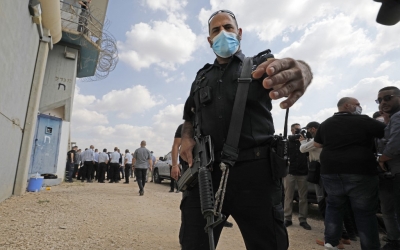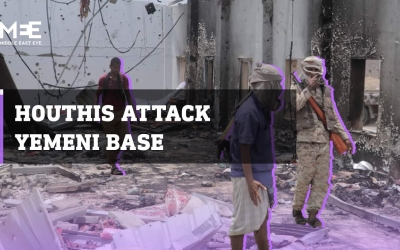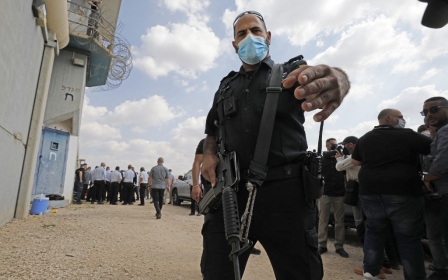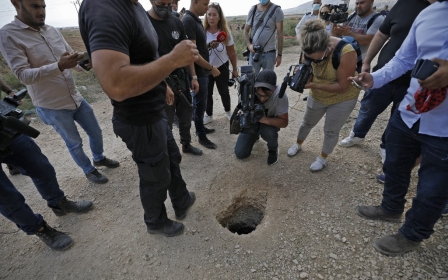Arabic press review: Gilboa prison break in Israel hailed across region
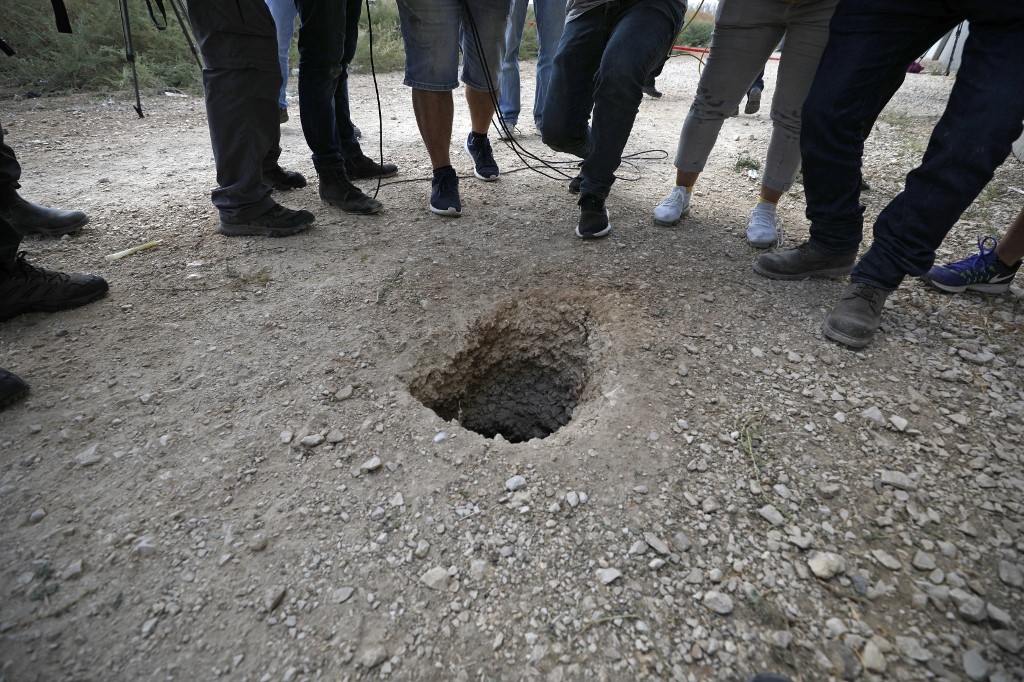
Gilboa jailbreak 'severe blow' to Israeli security system
The escape of six Palestinian prisoners from the highly fortified Israeli prison of Gilboa on Monday constitutes a severe blow to the Israeli security system, a report by the Jordanian newspaper al-Ghad said.
The paper considered the escape as a setback for the Israeli security apparatus, especially after the death of an Israeli sniper on the Gaza border and the subsequent criticism and negative repercussions of the incident in Israel.
The paper argued that the Gilboa incident would also "expose the Israeli security establishment’s claims of readiness, accuracy, security, and vigilance."
The report indicated that it is likely that the consequences of this incident will be "significant and dangerous" in Israel, which may increase the loss of trust and political instability inside Israel, while putting the fate of its government at stake.
Palestinian observers cited by the paper said that the successful jailbreak represents "a great victory for the Palestinian resistance, gives a new spirit for the Palestinians, and stands for an important achievement for the Palestinian people".
Gulf commentators react to Israel prison break
In Gulf countries, the successful escape of the six Palestinian prisoners has been praised as a victory for Palestinians.
Abdullah al-Shayji, a Kuwaiti political scientist, said that "the occupation and its security, intelligence and military institutions are in a state of shock and astonishment after the scandal of their failure,” as quoted by al-Khaleej Online newspaper.
“The hole of freedom is a slap in the face of the occupation," he said, in reference to the tunnel dug by the escapees.
Meanwhile, Qatari journalist Elham Badr wrote a series of tweets celebrating the prison break, arguing that the Palestinians "smeared the prestige" of Israeli security forces.
"A spoon defied the occupation's security system in Gilboa prison, where the Israelis will keep wondering how the six Palestinians hid the dirt of the freedom tunnel," she added, referring to reports that the escapees used a rusty spoon for the excavation.
Qatari journalist Jaber al-Harami described the escape operation as a "qualitative process," claiming that the ex-prisoners had been digging the tunnel for years, while Emirati activist Hamad al-Shamsi said "we have only seen such stories in films and series."
Iraq attempts to recover smuggled billions
Iraqi authorities are working to recover at least $250bn smuggled out of the country, in coordination with the countries to which the money was sent, as Baghdad prepares to hold a conference to recover the looted funds in mid-September, the London-based al-Araby al-Jadeed newspaper reported.
Finance Minister Ali Allawi was quoted as saying that $250bn had been "stolen" from Iraq since 2003, adding that "this amount is enough to build many countries, and these thefts have led to a decline in Iraq's economic capacity".
Meanwhile, a former member of the parliament's finance committee, Rahim al-Daraji, said that the value of the looted funds in Iraq amounted to $450bn.
Iyad Mohsen, the judge of al-Rusafa Court in Baghdad, which is competent to consider cases of money laundering and economic crime, said that efforts are underway to recover the smuggled funds in Morocco and the Emirate of Dubai.
Mohsen explained that "dozens of cases concerning outlets of foreign exchange companies that operate and transfer funds out of Iraq without permission are presented" at the investigative court, which specialises in money laundering, according to al-Araby al-Jadeed.
The judge indicated that these exchange operations are tainted with suspicions of currency smuggling and money laundering, and many prison and jail sentences have been handed down to those involved.
Mohsen told the paper that there is an office at the Central Bank of Iraq dedicated to combating money laundering which has joint cooperation agreements with the corresponding offices that exercise the same jurisdiction in the countries to which the money has been smuggled.
Houthis accuse UK of spying in Yemen
The Houthi rebel group in Yemen has accused Britain of "spying on the country's communications networks, in complicity with the internationally recognised government".
A member of the group's negotiating delegation, Abdul-Malik al-Ajri, said in a tweet that "Britain is carrying out espionage activities on some Yemeni communication networks and some submarine cables in the southern governorates, from which they have taken bases to serve their colonial objectives".
Al-Ajri stressed that this case constitutes "a blatant violation of Yemeni sovereignty and the privacy of Yemeni citizens, with the shameful complicity of the legitimacy of the hotels", he said, in reference to the exiled Yemeni government.
The Saudi-backed government and the Houthis have been locked in war since 2014, when the rebels seized the capital Sanaa.
The conflict is described by the United Nations as the worst humanitarian crisis in the world, with the majority of Yemenis dependent on aid and millions facing hunger.
*Arabic press review is a digest of news reports not independently verified as accurate by Middle East Eye.
Middle East Eye propose une couverture et une analyse indépendantes et incomparables du Moyen-Orient, de l’Afrique du Nord et d’autres régions du monde. Pour en savoir plus sur la reprise de ce contenu et les frais qui s’appliquent, veuillez remplir ce formulaire [en anglais]. Pour en savoir plus sur MEE, cliquez ici [en anglais].


